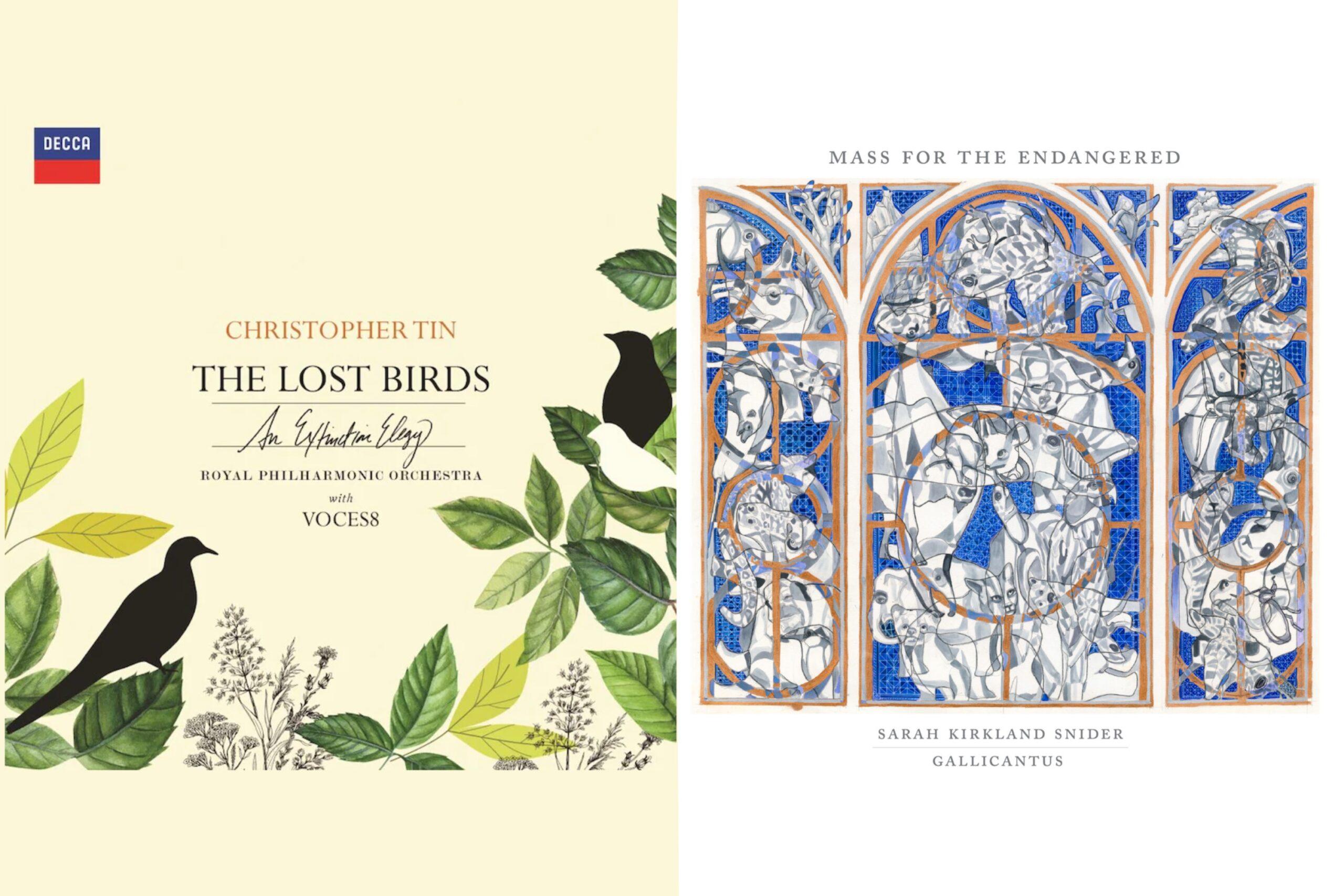
Music and nature share an inseparable bond. Composers like Beethoven and Dvorak have long celebrated their love of nature in music. In recent years, contemporary composers have combined their love of nature with their concern for the environment into compelling new pieces. To celebrate Earth Day, listen to these works that acknowledge humankind’s impact on our world and the millions of species that inhabit it.
"Mass for the Endangered" (2020) - Sarah Kirkland Snider
Composer Sarah Kirkland Snider was looking to harness the traditional Catholic Mass to bring attention, awareness and urgency to the earth and its creatures in trouble in what she calls both a celebration and an elegy. "The origin of the Mass is rooted in humanity’s concern for itself, expressed through worship of the divine — which, in the Catholic tradition, is a God in the image of man," says Snider. She teamed up with poet/librettist Nathaniel Bellows on this project. "Nathaniel and I thought it would be interesting to take the Mass’s musical modes of spiritual contemplation and apply them to concern for non-human life — animals, plants, and the environment."
"Carnival of the Endangered Animals" (2020) - Debbie Wiseman
As the name suggests, this is a 21st-century companion piece to Saint-Saens’s "Carnival of the Animals." Debbie Wiseman brings light to six endangered animals with populations in the wild ranging from 2,000 to 120,000, including the red panda, orangutan and polar bear — all threatened by habitat loss, pollution, hunting or climate change.
"The Lost Birds" (2022) - Christopher Tin
Composer Christopher Tin calls "The Lost Birds" "an extinction elegy." It’s meant to memorialize the species of birds already driven to extinction. The music serves as both a celebration for our avian friends, including the symbolism they hold to humankind, and a warning about the imminence of extinction for both birds and humans. Tin used the words of 19th-century poets to pinpoint the Industrial Revolution as the start of a disastrous reshaping of the world and the environment.
"The Rising Sea Symphony" (2020) - Kieran Brunt
The piece is loosely structured as a symphony by the composer's own admission. It travels the world to places experiencing the effects of our changing world. The piece takes listeners from villages in Ghana swept away by rising sea levels to melting arctic ice in Norway, bringing attention to the drastic effects of climate change by combining electronic music, field recordings, words and vocals, and orchestral instruments.
"Glaciers in Extinction" (2007) - Roberto Fabbriciani
A six-movement suite by flutist Roberto Fabbriciani, written for his own instrument, is meant to suggest elements of the natural world and evoke the large, slow nature of glaciers and their alarming disappearance. Each movement is named after glaciers disappearing around the world, from the top of Mt. Kilimanjaro to what was once the world's highest ski resort in Bolivia.
Listen to these works to commemorate Earth Day, plus some well-known classical favorites celebrating the natural world in this Spotify playlist:
There are a variety of ways to hear great performances by today’s top artists as well as legendary singers from the Metropolitan Opera’s history. Download the Colorado Public Radio app, tune in at radio signals around Colorado, or you can tell your smart speaker to “Play CPR Classical."









